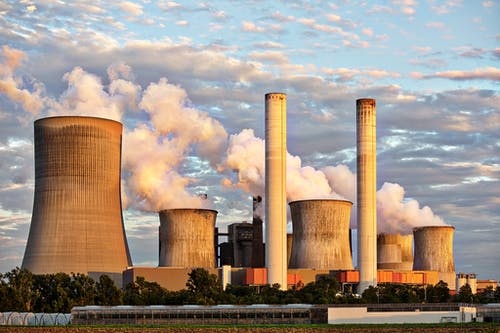Brussels/New York, July 14 – The European Union has unveiled its most ambitious blueprint to fight global climate change by proposing to eliminate sales of new gas- and diesel-powered cars and raising costs of using fossil fuels by 2030. The bold move aimed at achieving a carbon neutral economy by 2050.
The EU blueprint is composed of a dozen draft proposals that still have to be negotiated and approved by the bloc’s 27 members and by the European Commission, which is the administrative body. The proposals are seen as a challenge to the rest of the world to follow the EU’s actions, which include taxing jet fuel and imports of manufacturing products that fail to meet the EU climate standards.
Before announcing its new measures to fight climate change by reducing carbon emissions 55 per cent from 1990 levels by 2030, the EU in 2019 had cut emissions by 24 per cent from 1990 levels.
The key proposals just announced called for tighter emission limits for cars, tax on aviation fuel and a tax on carbon border tariff requiring manufacturers from outside the EU to pay more for importing materials like steel and concrete.
“By acting now we can do things another way and choose a better, healthier and more prosperous way for the future,” said Ursula von der Leyen, the president of the European Commission, at a news conference in Brussels when she unveiled the blueprint.
“Europe is ready to lead the way,” she said.
Negative reaction to the blueprint was immediate, particularly from countries under trade agreements with the EU and leaders in industries such as airlines and car manufacturers.
The United Nations Conference on Trade and Development agency (UNCTAD) countered the EU on the same day its blueprint was published (July 14) by saying that the EU’s Carbon Border Adjustment Mechanism (CBAM) “could change trade patterns in favor of countries where production is relatively carbon efficient but do little to mitigate climate change.”
“Climate and environmental considerations are at the forefront of policy concerns, and trade cannot be the exception. CBAM is one of these options, but its impact on developing countries also needs to be considered,” said Isabelle Durant, the UNCTAD Acting Secretary-General.
A published UNCTAD report said CBAM has “potential implications on international trade, carbon dioxide (CO2) emissions, income and employment for countries inside and outside the EU, with a special focus on developing and vulnerable countries.”
The report said CBAM would reduce part of the carbon leakage produced by the different climate change ambitions between the EU and other countries. It said carbon leakage refers to “the relocation of production to other countries with laxer emissions constraints for costs reasons related to climate policies, which could lead to an increase in their total emissions.”
The report said several EU’s trading partners that exported goods in carbon-intensive sectors – including cement, steel, aluminum, oil refinery, paper, glass, chemical and fertilizers – have raised concerns that the CBAM would substantially curtail their exports, but these changes may not be as drastic as some fear.
Read more news on Climate here
United Nations correspondent journalists – United Nations correspondent journalists – United Nations correspondent journalists
United Nations journalism articles – United Nations journalism articles – United Nations journalism articles

